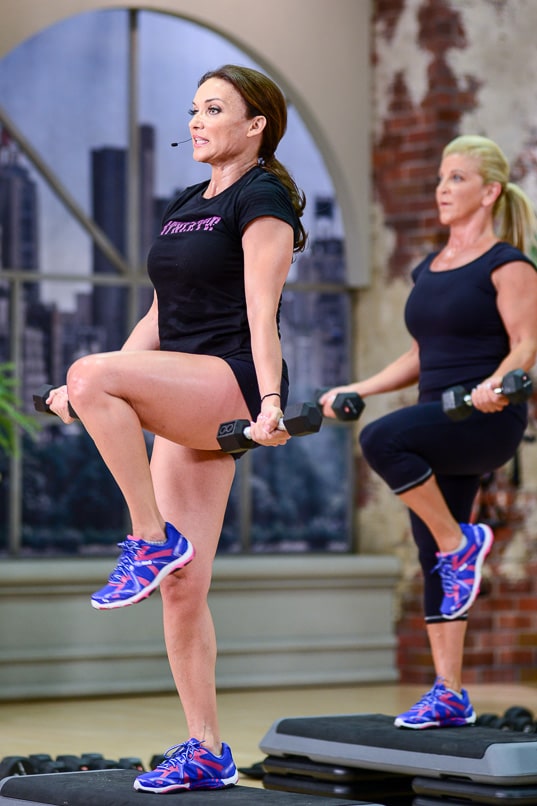
What causes sudden death? It’s usually due to an abnormal heart rhythm where the lower chambers of the heart called the ventricles beat in an erratic manner. This is called ventricular fibrillation. Unless there’s a defibrillator nearby to “shock” the flailing heart muscle back into a normal rhythm, a person with ventricular fibrillation will die. Interestingly, exercise itself seems to offer protection against fatal irregular heart rhythms like ventricular fibrillation. How does it do this? One way is by increasing heart rate variability.
Heart Rate Variability and Exercise: How Exercise Protects Against Sudden Death
As you may already know your heart rate and rhythm is controlled by your autonomic, sometimes referred to as the “automatic” nervous system and involves input from your brain. This is all done without your conscious awareness. The portion of your autonomic nervous system that speeds up your heart is called the sympathetic nervous system. When you’re excited, stressed or exercising, the sympathetic nervous system is in control and your heart rate speeds up. The other portion of your autonomic nervous system called the parasympathetic nervous system slows down your heart rate. It’s active after a meal, when you’re relaxed and when you’re sleeping. It’s the “chill and relax” portion of your nervous system.
Interestingly, your risk of dying suddenly from an abnormal heart rhythm is related to how well your heart responds to the challenge of slowing down and speeding up. One measure of this is heart rate variability. A healthy heart is able to speed up quickly in response to stress and slow down after the stress is over. Hearts that have trouble doing this have low heart rate variability. Low heart rate variability is linked with a number of health problems other than fatal heart rhythms including high blood pressure, heart failure, heart attack, and diabetes.
People who have low heart rate variability have an imbalance between the two divisions of their autonomic nervous system – the parasympathetic and sympathetic. More specifically, their sympathetic nervous system is more powerful than their parasympathetic system. This imbalance is linked with fatal heart rhythms, heart attacks, etc. Low heart rate variability is a sort of marker for people at higher risk for sudden death and heart problems.
How do you know how “variable” your heart rate is? It can be measured with an EKG, a tracing of the heart, by looking at how your heart rate slows down and speeds up as you breathe. Heart rate variability also gives you an idea of how your heart responds to stress. There are apps that can measure heart rate variability too, although it’s not clear how accurate they are.
Exercise and Heart Rate Variability
If you need another reason to exercise, here’s one. Exercise training increases heart rate variability. This creates a healthier balance between the divisions of your autonomic nervous system that control your heartbeat. It does this by increasing parasympathetic activity, the portion of your nervous system that slows your heart rate down. It seems that people who have low heart rate variability have too much sympathetic nervous system activity relative to parasympathetic activity. Exercise helps to correct this. This makes your heart more resistant to fatal heart rhythms that can lead to sudden death.
Is Lower Heart Rate Variability a Marker for Overtraining?
Reduced heart rate variability may also be a sign that an athlete is overtraining. When you’re exercising without giving your body a chance to rest and recover, the sympathetic nervous system division starts to gain dominance over the parasympathetic one and heart rate variability goes down. At the same time, you might notice your first-morning heart rate, before you get out of bed, is faster than usual. This is due to increased sympathetic activity due to the stress of overtraining. This releases hormone likes adrenalin that speed up your heart rate. Heart rate variability and heart rate in the morning are ways to monitor whether you’re training excessively. You would need to use an app that measures heart rate variability.
The Bottom Line?
Exercise does a number of good things for your cardiovascular system. It could also lower your risk for sudden death due to an irregular heart rhythm by creating a healthier balance between the divisions of your nervous system that control your heartbeat. There are so many good reasons to exercise – now you can add another one to the list.
References:
Can J Cardiol 2010;26(6):303-312.
J Am Coll Cardiol. 1996;28(2):428-431. doi:10.1016/0735-1097(96)00137-4
Circulation. 1996; 93: 1043-1065 doi: 10.1161/?01.CIR.93.5.1043.
Related Articles By Cathe:
Is a Brisk Walking Speed a Marker of Health?
Heart Rate Variability: What It Means for Your Exercise Training & Your Health
Is High-Intensity Exercise Better for Your Heart Than Moderate-Intensity Exercise?
Enlarged Hearts in Athletes: Is It Athlete’s Heart?

